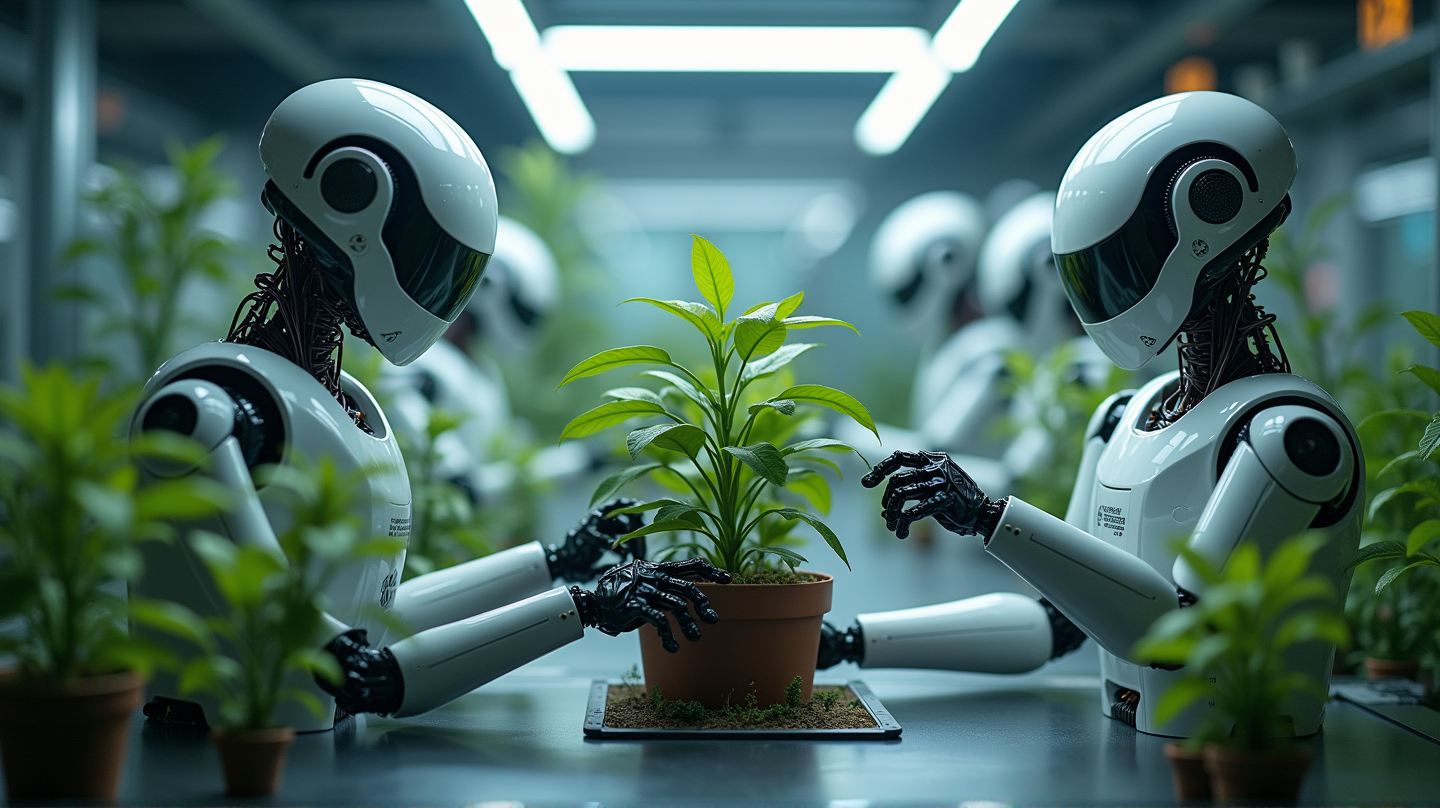A New Age of Automated Innovation
Imagine a lab where robots tirelessly work to transform plant cells, enhancing their natural abilities far beyond what nature conceived. This isn’t science fiction; it’s happening now at the Center for Advanced Bioenergy and Bioproducts Innovation (CABBI), where a revolutionary biofoundry called FAST-PB is speeding up plant engineering by automating critical processes. Scientists there have integrated robotics, computer-aided design, and cutting-edge informatics to achieve never-before-seen levels of efficiency and ingenuity in plant genome editing.
Improving Plant Traits for a Greener Future
The integration of robotics in plant bioengineering aims to create plants that produce more oil, with improved photosynthesis—a groundbreaking advancement for the biofuels industry. FAST-PB not only increases the speed of plant trait engineering but also optimizes metabolic pathways, promising a more robust, scalable production of biofuels. This automated process reduces the cost and time associated with labor-intensive plant transformations, making bioengineering accessible and cost-effective.
The Broader Impact: Pioneering Biofuel Production
Biofoundries like the one at CABBI are paving the way for a bio-based economy. Through their work, bioenergy crops can become more resilient and productive, playing a crucial role in sustainable energy production. These advancements in plant bioengineering can support rural economies, enhance agricultural value, and foster increased energy self-sufficiency. According to Department of Energy (.gov), this transition not only promises environmental benefits but also economic revitalization.
Collaboration and Support Driving Advances
The research at CABBI is a product of collaboration among key researchers and is heavily supported by the U.S. Department of Energy. The collective effort aims to drive forward the use of bioenergy, creating a sustainable and eco-friendly landscape for future energy needs.
Final Thoughts: Plant Bioengineering on the Rise
With plant bioengineering on the cusp of transforming industries, the innovations at CABBI highlight the power of combining robotics with biology. The resulting advancements could soon see bioengineered plants contributing significantly to energy resources, underscoring the need for continuous support and innovation in this vital field.
By harnessing the power of robotics, scientists are cultivating a bold new frontier in plant bioengineering, one where the possibilities seem endless.
